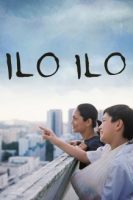Directors: Sivaroj Kongsakul, Shijie Tan and Xin Yukun
For the most part, film titles act as a calculated lure, first and foremost to sell a film, and second to vaguely describe it. However, in Distance, the titular encapsulation accurately grasps the magnitude to which the theme of distance is explored. This part Thai, part Chinese, part Singaporean anthology puts the Oxford dictionary to shame with its impressive redefining and expanded understanding of this word, as told in three different stories. A dejected manager is fascinated by an elderly employee; two long lost friends unite, knowing that one of them will be lost forever; and a teacher reunites with his beloved professor, mirroring the desires a young student now has for him. Although directed by three different filmmakers, the film’s tone remains fluent through its usage of simplistic cinematography and familial landscapes. Distance’s emphasis remains in its quest to the heart of connection and detachment, and the varied forms they can take.
Xi Yukun begins the anthology with “The Son”, starring Chen Bolin. Chen, who continues as the main character in all of the stories, stars as a high-level manager on a business trip, with a secret agenda to find his long lost father, played by Paul Chun. Even after abandoning him and his mother, Chen does not seek confrontation and revenge, but witnesses it regardless, having to see his old father being ill-treated by his younger son, from a subsequent marriage. The whole story plays out as testament to restraint and delayed connection. By its conclusion, Chen’s restraint wears thin; in a swift, impulsive act, we see that Chen’s hatred and ager was never directed towards his father; but instead, at the things that kept them apart.

The second story, titled “The Lake” and directed by Tan Shijie delves into the fragile world of masculine emotionality with Chen Bolin and Tony Yang playing two childhood friends, torn apart in life and reunited in the direst of circumstances. In a brutally real examination of childhood relationships, a modest family man meets with a convicted criminal he once shared his world with, now, with only one thing in common; how to end this criminal’s life. Told through a series of flashbacks and Chen’s journey to Singapore where his long-lost friend is imprisoned, the audience are treated to snippets of their former closeness, rich in subtext. A more intuitive view of this short will reveal it to be a subtle look at homosexuality and its interrupted exploration. “I’m married now” is one of the first sentences uttered by Chen to Yang when they meet years later, as if abruptly ending a chapter book; to be closed, put on a shelf and never read again. Their exchange is almost transactional and suspiciously shallow. What’s most compelling is watching the two attempt to avoid depth or a resurgence of any long lost feelings with the person they had shared the most of themselves with.
Rounding out the trio is Sivaroj Kongsakul’s “The Goodbye”. Perhaps the most gripping and pertinent of the three, “The Goodbye” seeks to tell both the past and present of the same relationship. Chen is former delinquent turned scholar, and arrives at a Thai College as a guest lecturer, where he speaks about the changing landscape of relationships and modern-day connections. He is led around Thailand by Pim, a student at the college and a loyal admirer of Chen’s. At first, this appears to be the whole story – but Kongsakul impresses with his intertwining of a second woman, Chen’s own former professor, who awakens the earnest admirer in himself. Chen, caught up in his own nostalgic yearning, discards Pim’s affections as trivial – in the same way his professor had done to him, 12 years prior. However, his feelings remained unchanged, despite the distance in age, time and geography. The story’s conclusion not only hints at redemption of love, but as a warning that sometimes distance is a boomerang – as history, so often, repeats itself.
The entire film avoids melodrama at all costs, perhaps an effort to stand out against more traditional Chinese dramas. Distance is a smooth ride of a film that doesn’t demand weighty emotional receptions, allowing, instead, for its audience to choose how to react, and to what degree. Its titular theme is evident not only its stories, but also its reception – no matter what distance you choose to view the film from, its refreshingly relaxed narrative will stay with you.
Watch Distance on FilmDoo








